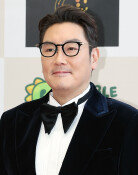Generation Y Ready to Rock U.S. Election
Generation Y Ready to Rock U.S. Election
Posted May. 13, 2008 08:30,
▽ Young generation help Obamas victory
The most powerful engine that allowed Barack Obama to virtually secure the Democratic Party nomination was the enthusiastic support from young voters. Turnout of those aged between 18 and 29 in the latest primary doubled compared with the past, and even tripled in some regions.
The average age of voters in Georgia where Obama won a convincing victory stood at 28, while the average age in Pennsylvania where Clinton claimed the major victory was 40.
One of the most striking factors in the run-up to the U.S. presidential election is the segregation of voters by age. This trend appears in all races, except for African Americans. Emily Thompson, a graduate student of Hispanic heritage, said at Obamas rally in mid-February, My parents say the Clintons are the friends of Hispanic people. But I joined the meetings of Obama supporters and donate my money through the Facebook online social network.
Obama has long been focusing on his strategies to attract the young voters. For this reason, he stressed generation during his speech to declare his candidacy for the presidential election by referring to the term thirteen times. In his speeches, Obama made short sentences using relative pronouns in order to court young voters.
▽ Baby Boomers vs. Generation Y
Usually, adults in the United States are often classified as the war generation (those born prior to 1945), the baby boomers (those born prior between 1945 and 1960), Generation X (those born prior between 1961 and 1977) and Generation Y (those born prior between 1978 and 1994). In other words, the primary election this year was nothing but a struggle between two different generations: the baby boomers and those born afterwards.
Of course, this is not the first time that new and old generations within the Democratic Party have competed against one another. In an interview with the Dong-A Ilbo, William Galston, a senior fellow at the Brookings Institution, said, When Gary Heart claimed to stand for new ideas in 1983 presidential elections, he and Walter Mondale, who had support among older generations, engaged in face-to-face confrontation in the presidential campaign.
Nonetheless, no precedent has been reported like this presidential election, which is being shaped up by the active participation of the young voters. Terry Madonna, director of the Franklin & Marshall College Poll, said, Although for the past four decades, younger generations have displayed their support for Democratic Party except the era of Ronald Reagan, black and female candidates have never had such a higher chance to win the election. He added, We are writing a new chapter in American history.
▽ Sociology in generation conflicts
One of the major reasons pointed out to explain the massive political participation by the young generations lies in the unsatisfied reality, which made generations raise their voices in unison against both liberals and conservatives.
In fact, the buck should be stopped at President George W. Bushs desk. Iraq war is the top issue for college students who plan to vote. The failure of the war imbued them with the sensation of changes, which translates into the recognition to bring change in the old politics. In this sense, Hillary Clinton was considered the old force to be changed.
Anthony Lewis, a senior at Maryland University, who met with the reporter at Obamas rally in February, said, I believe that the United States could emerge as the super power and enjoy what it is today, thanks to the efforts of the existing generations. I am interested in Obamas pledges that focus on integration rather than disruption.
Meanwhile, a professor explained the situation by referring to the Bradley effect. This phenomenon has come to be known in 1982, when Democrat Tom Bradley, an African-American, was running ahead of his Republican opponent, who was white, in exit polls in the California governor`s race, but he ended up losing the election.
The professor said on the condition of anonymity, Older democrats tend to consider the racial factor in casting their ballots, leading to the reduction in the number of Obama supporters, while younger generations appear less likely influenced by race, giving rise to the increase in supporters for Obama among them.
▽ Perspectives on presidential race
The battle between Sen. John McCain and Sen. Barack Obama is a competition between the baby boomers vs. Generation Y. Then, who will be chosen by the old generations who back Hillary Clinton?
This presidential election shows the biggest age gap between candidates, compared with other presidential elections in the past. If asked whether the new and old generations of the Democratic Party can be united, I would rather say that it is unlikely, said researcher William Galston.
On the other hand, Professor Madonna said, The conflicts between the generations are projected to be confined in this election. Democrats will remain as supporters for the Democratic Party, and they will stick to their party preference.
sechepa@donga.com triplets@donga.com







